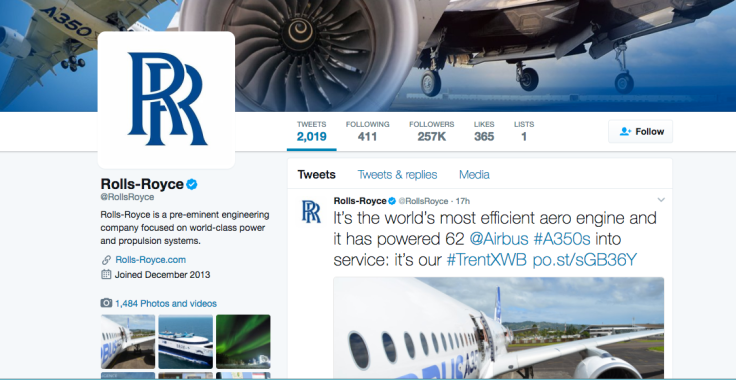As social media platforms was introduced to the world, small businesses, non-profit businesses and larger organisations realised the strength of their online presence. Businesses could provide customers with new product information, online sales and gain feedback which provided faster and more efficient sales, not only in one region but throughout the whole world. Today I will focus on small businesses, non-profit business and how they use social media.
What are small businesses and non-profit businesses?
Small businesses are defined by mbie.govt as enterprises with less than 20 employees and non-profit businesses are businesses that can also be called charities as they provide community or environmental services through donations and volunteers. Both of these types of businesses use and need social media in order to grow and their provide services.



How can small businesses and non-profits use social media?
According to Barnes and Mattson (2010) “a remarkable 97% of charitable organisations are using some sort of social media” (p.1). This is a very high percentage that can also be seen with small businesses as well. Examples of popular social media websites or applications used by businesses include Blogs, Facebook, YouTube, Twitter and LinkedIn.

Small businesses mainly use social media for:
- Growth
- Marketing
- To promote their business name out in the world
- Online sales
- Networking
- To gain more loyal customers
- Business and customer interaction through reviews
- To understand what customers want
- Where customers are situated
Non-profit businesses use social media for:
- Growth
- Marketing through explaining their business/charity story or goal
- Networking
- Online and offline Donations
- Volunteers to continue their community services or missions
- To reach people, communities and areas in need
Both small businesses and non-profit businesses use social media for growth, transparency and profit or funding.
The following image gives more information and statistics about the why and how businesses network online, and why it is important.

The different ways small and large businesses use social media (in the context of B2B and B2C)
B2B (Business-to-Business) and B2C (Business-to-Consumer) relates to the way businesses operate. B2B businesses sell products or services to other businesses and B2C sell products or services directly to the consumers. A good example of a B2B business is a car battery manufacturing company. The car batteries are produced by one business and then sold to the car manufacturing business. With a B2C business, a good example is McDonald’s which sells food directly to customers (Arline, 2015).
B2B and B2C businesses use social media differently depeding on their size, needs and challenges within the business. A large B2B business such as Rolls-Roys in the Aerospace industry manufactures aircraft engines and uses social media such as Twitter to interact and engage with current and potential customers and also to promote their business’s image of innovation and sustainability (as seen on the image below).

(Twitter.com, 2017)
A small B2C business such as Target Road Bakery, that provides food and beverages for customers, uses social media such as Facebook to maintain current customer relationships and also to promote their business to potential customers. On the image below, Target Bakery’s Facebook page provide information to customers, reviews and feedback and also videos on how their food is made.

The biggest difference between social media use for small or large B2B or B2C businesses depends on the needs of the business. Example, large B2C businesses, like Rolls-Royce need to maintain their business image and also maintain customer relationships, which they do through Twitter. Smaller business’s most important challenge is to get their business name out in the world and engage more with customers. This can be done by mostly using Facebook (as seen with Target Road Bakery) and Blogging.
When used by businesses, in what ways does mobile social media differ from ‘traditional’ social media?
Mobile social media refers to the use of a social media app/site on a phone or tablet for easier connection and interaction (on-the-go) between people or businesses and traditional social media refers to the use of more desktop based social media such as blogs for business and product innovation articles and news.
Hemly (2014) mentioned in the website Social Media Examiner that “Users are spending more time accessing social media from mobile devices compared to desktop computers”. This is because mobile social media is a more portable and efficent way of communicating than traditional social media as people can take their cellphones and tablets with them everywhere they go.
As mentioned in my Week 1 blog, people are programmed to connect and be around others and businesses use this to their advantage. While customers go on their Facebook app multiple times a day to scroll through daily posts, or Instagram to look at images, businesses make sure that their advertisements are present between those posts. A business that has a strong online presence on mobile social media (compared to traditional social media) can expect more sales, advertisement views and more customer interaction.
Risks of using social media in small businesses and larger businesses
The biggest risk of using social media relates to security issues. Hacking, spy-ware and bugs to name a few, are not only risks for large businesses but small businesses as well. When businesses use social media, and hacking occurs, confidential business documents and customer information can be leaked on the web and that can cause serious legal issues for the business. To prevent this from happening, all businesses should make sure that their security software and privacy settings are up to date and looked at by an IT professional. Bigger companies are seen to be more at risk as their accounts and databases hold more confidential documents and data as the customer numbers are higher. (Techxb.com, 2014)
Other risks, mentioned in my week 2 blog What is Blogging?, when small or larger businesses use Blogs, Facebook or any type of social media platform that give customers to opportunity to review services or products, businesses must filter those reviews and also deal with complaints in a timely manner. This is due to the fact that complaints and bad reviews can damage a business’s image or brand significantly.
References
Featured image retrieved from LETABAHerald, 2017
Witzig, L., Spencer, J., & Galvin, M. (2012). ORGANIZATIONS’ USE OF LINKEDIN: AN ANALYSIS OF NONPROFITS, LARGE CORPORATIONS AND SMALL BUSINESSES. Marketing Management Journal, 22(1), 113-121.

Great post, very good read 🙂
LikeLiked by 1 person